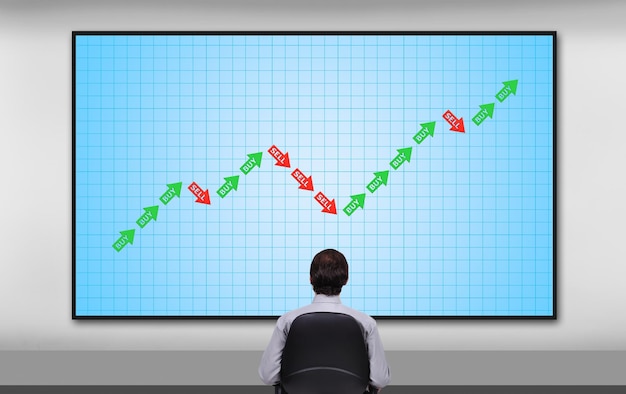Federal Reserve Hikes Rates: Impact on Savings & Loans in the US

Breaking: A recent federal interest rate hike significantly impacts savings accounts and loan interest rates across the United States, affecting consumers and businesses alike by influencing borrowing costs and investment returns.
The Federal Reserve has just announced another interest rate hike, sending ripples through the US economy. This breaking: federal interest rate hike announced – how it affects your savings and loans – will directly influence the money in your pocket.
Understanding the Federal Reserve’s Interest Rate Decision
The Federal Reserve (often called the Fed) plays a crucial role in managing the US economy. One of its primary tools is adjusting the federal funds rate, the interest rate at which commercial banks lend reserves to each other overnight. So, why did they decide to raise rates now?
The Fed’s decision to hike interest rates is typically driven by its dual mandate: to promote maximum employment and stable prices. When inflation, the rate at which prices for goods and services rise, is above the Fed’s target (generally around 2%), they may raise interest rates to cool down the economy.
Factors Influencing the Hike
- Inflation Data: Persistently high inflation readings are a major catalyst for rate hikes.
- Employment Levels: A strong labor market can also contribute to inflationary pressures.
- Economic Growth: Robust economic growth might warrant higher rates to prevent overheating.

In this particular instance, several factors likely contributed to the Fed’s decision. Recent inflation data might have been stubbornly above the target range, or the job market could have remained exceptionally tight, leading policymakers to believe that higher rates were necessary to curb inflation and stabilize the economy.
Ultimately, the Federal Reserve’s actions are a balancing act. They aim to rein in inflation without causing a significant economic slowdown or triggering a recession. The impact of these hikes will be felt differently across various sectors of the economy.
How the Rate Hike Affects Your Savings Accounts
One of the most direct impacts of a federal interest rate hike is on your savings accounts. When the Fed raises rates, banks often follow suit by increasing the interest rates they offer on savings accounts, certificates of deposit (CDs), and other deposit products. But how significant will this increase be?
Typically, the increase in savings account rates isn’t a one-to-one match with the Fed’s rate hike. Banks consider various factors, including their own funding needs and competitive pressures, when setting their savings rates. However, over time, you should expect to see some upward movement in the interest you earn on your savings.
Strategies for Maximizing Your Savings Returns
- Shop Around: Compare rates offered by different banks and credit unions. Online banks often offer more competitive rates.
- Consider High-Yield Savings Accounts: These accounts typically offer significantly higher interest rates than traditional savings accounts.
- Look into Certificates of Deposit (CDs): CDs offer a fixed interest rate for a specific term. If you don’t need immediate access to your funds, a CD could provide a higher return.
It’s crucial to remember that even with higher interest rates, it’s essential to consider the impact of inflation. If the rate of inflation is higher than the interest you’re earning on your savings, your purchasing power is still decreasing over time. Therefore, it’s vital to assess all your investment options, considering risk tolerance and long-term financial goals.
Impact on Mortgage Rates and Home Buying
For prospective homebuyers, the news of a federal interest rate hike can be daunting. Mortgage rates are closely tied to the 10-year Treasury yield, which generally moves in the same direction as the Fed’s benchmark rate. Therefore, a rate hike typically translates to higher mortgage rates.
This increase in mortgage rates can have a substantial impact on affordability. Even a small increase in the interest rate can add hundreds of dollars to your monthly mortgage payment, making it more challenging to qualify for a home loan. As a result, some potential buyers may be priced out of the market, leading to a slowdown in home sales.
However, it’s important to consider the broader context. While rising mortgage rates can create challenges for buyers, they can also help to cool down an overheated housing market. This can lead to a more balanced market with less competition, potentially giving buyers more negotiating power.
While the increase has a direct impact on mortgage rates, there are benefits:
Navigating the Housing Market in a Rising Rate Environment
- Get Pre-Approved: Know how much you can afford before beginning your search.
- Shop Around for the Best Rates: Get quotes from multiple lenders.
- Consider an Adjustable-Rate Mortgage (ARM): ARMs typically offer lower initial rates, but be aware that the rate can adjust over time.
The current real estate market is ever changing. Always seek professional financial guidance.
Effects on Credit Card Interest Rates
Beyond savings accounts and mortgages, breaking: federal interest rate hike announced – how it affects your savings and loans can also have a significant impact on credit card interest rates. Most credit cards have variable interest rates, often linked to the prime rate, which tends to move in tandem with the Fed’s federal funds rate.
When the Fed raises rates, credit card companies typically increase their interest rates within one or two billing cycles. This means that carrying a balance on your credit card will become more expensive. The higher the interest rate, the more you’ll pay in interest charges each month.
Strategies for Managing Credit Card Debt
- Pay Down Your Balance: Focus on paying down your credit card debt as quickly as possible to minimize interest charges.
- Consider a Balance Transfer: Transfer your balance to a credit card with a lower interest rate.
- Negotiate with Your Credit Card Company: Ask if they’ll lower your interest rate.

It’s crucial to be mindful of your spending habits and to avoid accumulating unnecessary credit card debt, especially in a rising interest rate environment. High interest rates can make it significantly more difficult to pay off your balance, potentially leading to a cycle of debt.
Impact on Business Loans and Investments
The impact of a federal interest rate hike extends beyond individual consumers and also affects businesses. Businesses rely on loans to fund operations, expand their businesses, and invest in new equipment. Higher interest rates make borrowing more expensive, potentially impacting business investment decisions.
For small businesses, the impact can be particularly significant. Small businesses often have limited access to capital and may be more sensitive to changes in interest rates. Higher borrowing costs can make it more challenging for them to invest in growth opportunities and maintain profitability.
How Businesses Can Respond
- Refinance Existing Debt: Explore opportunities to refinance existing debt at lower rates.
- Carefully Evaluate Investment Decisions: Prioritize investments with the highest potential return.
- Improve Cash Flow Management: Focus on efficient cash flow management to reduce the need for borrowing.
It’s important to remember that rate hikes generally influence markets. This means changes in stock prices, bond yields, and overall investment returns. Understanding these implications is crucial for investors seeking to navigate the changing landscape and make informed decisions.
Long-Term Economic Outlook
The ultimate goal of the Federal Reserve’s monetary policy is to foster sustainable economic growth and price stability. While interest rate hikes can help to curb inflation, they can also have a dampening effect on economic activity. Therefore, it’s essential to consider the long-term economic outlook when assessing the impact of rate hikes.
Economists have differing opinions on the long-term effects. Some believe that the rate hikes are necessary to prevent the economy from overheating and to maintain price stability. Others worry that the rate hikes could trigger a recession by slowing down economic growth too aggressively.
Over time interest rates are only one factor affecting the economy.
Staying Informed
- Monitor Economic Data: Keep an eye on key economic indicators, such as inflation, employment, and GDP growth.
- Follow the Fed’s Communications: Pay attention to statements and speeches by Federal Reserve officials.
- Seek Professional Advice: Consult with a financial advisor to understand how the rate hikes may impact your personal finances.
As the economy evolves, so will the measures taken to protect it.
| Key Point | Brief Description |
|---|---|
| 💰 Savings Accounts | Interest rates may increase, offering better returns on savings. |
| 🏡 Mortgage Rates | Expect higher mortgage rates, impacting home affordability. |
| 💳 Credit Cards | Credit card interest rates will likely rise, increasing the cost of debt. |
| 💼 Business Loans | Businesses will face higher borrowing costs, affecting investment and expansion plans. |
Frequently Asked Questions
▼
The Federal Reserve raised interest rates to combat inflation, which has been running above their target of 2%. By increasing borrowing costs, the Fed aims to cool down the economy and bring inflation back under control.
▼
Banks may increase the interest rates they offer on savings accounts. However, the increase might not match the Fed’s rate hike exactly. Shop around to find the best rates and consider high-yield savings accounts for better returns.
▼
Mortgage rates are likely to increase following the Fed’s rate hike, impacting home affordability for potential buyers. This can lead to higher monthly mortgage payments and potentially cool down the housing market.
▼
Credit card interest rates, which are typically variable, will likely rise. This makes carrying a balance on your credit card more expensive. It’s wise to pay down debt and avoid unnecessary credit spending.
▼
The long-term impact is uncertain but aims for sustainable growth and price stability. Some worry about a recession if rate hikes slow growth too much, while others see it as necessary to control inflation, requiring monitoring of economic data.
Conclusion
In conclusion, the Federal Reserve’s interest rate hike has wide-ranging effects on your savings, loans, and investments. Understanding these impacts can help you make informed financial decisions and navigate the changing economic landscape.






